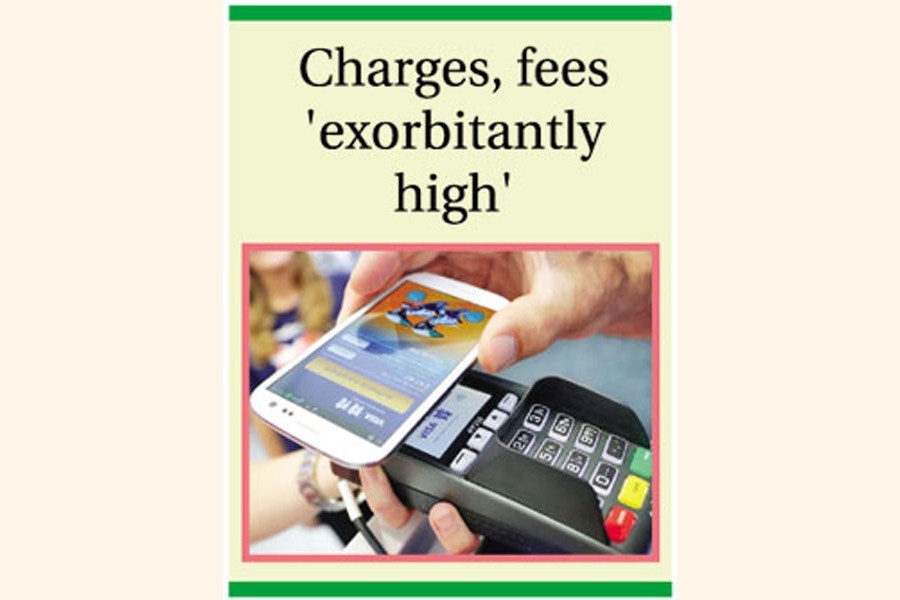The Bangladesh Mobile Phone Consumers' Association (BMPCA) has sought the intervention of the Bangladesh Competition Commission (BCC) to curtail the dominance of the biggest market player in the mobile financial service (MFS) industry.
In a memorandum, submitted recently to the commission, the BMPCA said the biggest player in the MFS industry should be announced as a significant market power (SMP) - to enhance competition, reduce charges and fees, and curb its dominance.
Talking to the FE, BMPCA President Mohiuddin Ahmed said charges and fees of the MFSs in the country are exorbitantly high, and these cannot be justified.
"The unjustified high charges are prevailing due to (dominance of) the biggest player in the market, although the market size is growing bigger every day."
"The telecom regulator has already introduced the SMP policy to control the market-dominating mobile phone carrier. The MFS regulator should follow the path," he added.
Last year, the consumers' association urged the Bangladesh Bank (BB) to intervene in the matter and announce the biggest player as an SMP.
SMP is a regulatory status, representing a company's dominant position in a given market. In economics, market power refers to the ability of a firm to influence the price at which it sells a product or service to increase economic profit.
According to the BMPCA letter - sent to the BCC, a foreign-funded company has occupied 70-80 per cent of the MFS market from the beginning.
Although Nagad broke the dominance of the largest player, the fees and charges of the MFS providers are still very high.
"So the government should declare the biggest player as an SMP, and introduce some restricting rules and regulations, so that other players can get a competitive environment," it added.
The BB introduced MFS in 2011 mainly to bring the country's unbanked population into the financial mainstream.
The move was facilitated through high penetration of mobile phone operators across the country coupled with technological development in the payment system.
Initially, the BB issued licences to 28 MFS providers, but the number of existing companies reduced to 15-18, each having banking stake - except Nagad, a concern of the Bangladesh Post Office.
Only five to seven MFS firms are now active in the market, and others have limited activities. Some again depend on third-party service sourcing.
It is alleged that charges of the services rendered by the MFS entities remain high in Bangladesh, as many of the market forces (demand and supply) are not working here properly.
However, competitive pricing has begun in one of the fastest-growing financial sectors, as Nagad - the newest service provider - has poured cold water on the hot tariff regime by drastically cutting down various charges.
Nagad, a government-private equity MFS, was launched in March 2019. It has reduced fees on the most used service - cash-out - by almost 50 per cent to Tk 11 for each Tk 1,000 transaction.
Transactions through the MFS platforms hit a record of Tk 422.36 billion in May, as the major providers offered discounts and cash-back to tempt Eid shoppers to pay through their channels. The amount was 20.8 per cent higher than that of the previous month, according to the BB data.
At the end of May, the total number of registered MFS accounts reached 70.5 million, excluding Nagad, of which 32.1 million were actively using the service.
At the end of April there were 29.1 million active accounts, as per the BB report.
Nagad currently has 54 million registered customers.


